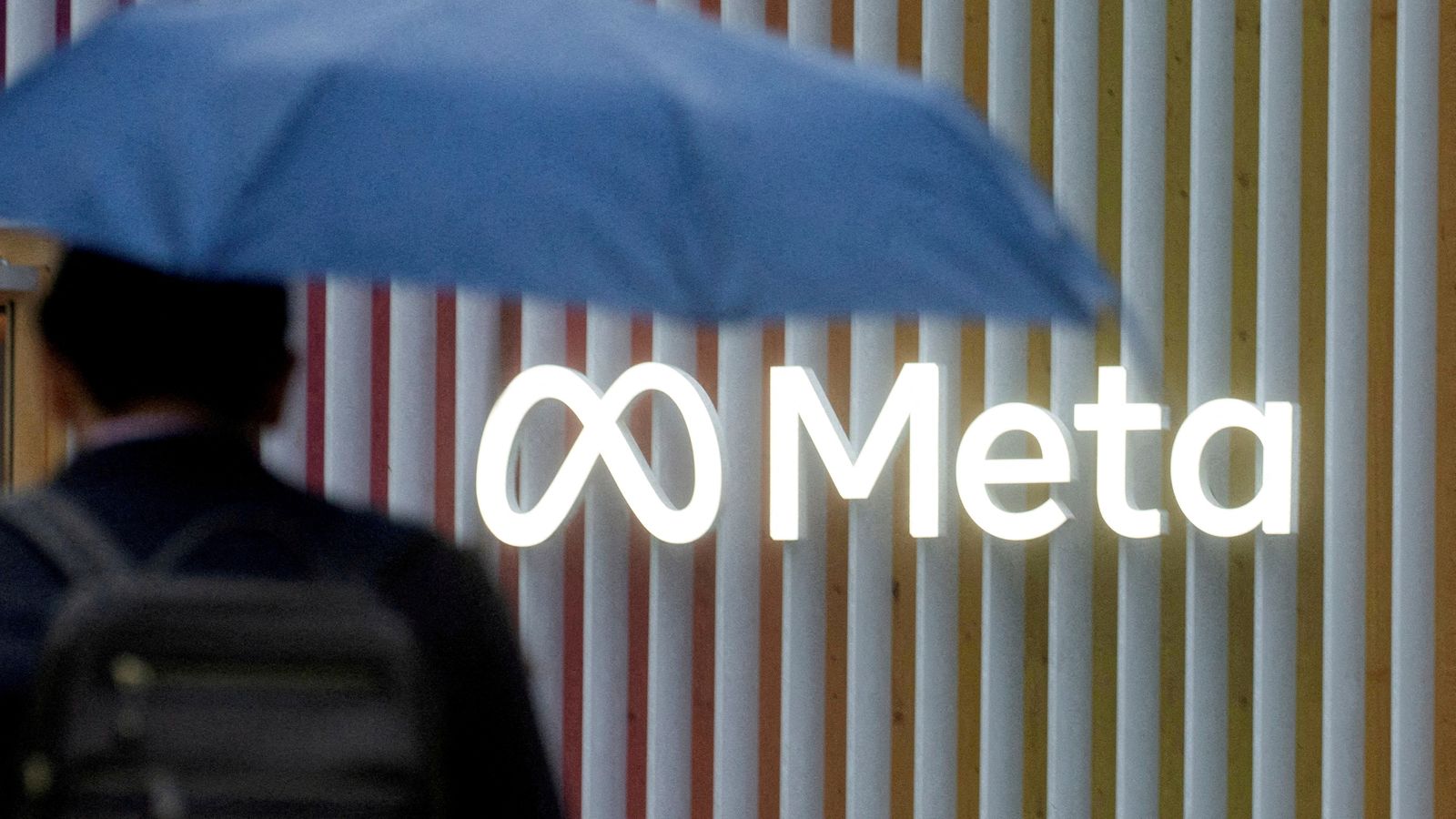Meta, the owner of Facebook and Instagram, has become the latest big tech player to wield the axe in the tougher global economy, laying off 13% of its workforce.
The firm announced on Wednesday it will cut its global headcount by more than 11,000 employees as part of a wider shake-up of the business that aims to drastically cut costs but maintain controversial investment in the metaverse.
Meta staff were being told what was happening to them individually via email.
They could notice all was not well in advance because the company said those losing their jobs would be excluded from most of its systems today due to concerns about access to sensitive information.
Those affected in the US would get at least six weeks salary as compensation, plus a further two weeks’ wages for every year served.
The arrangements would be similar elsewhere, the company said, though it was unclear whether any UK jobs were affected.
Meta has its European HQ in Ireland. Sky News understands that some permanent staff will lose out, though the numbers involved are not clear as a consultation process has to begin under the country’s laws.
Zuckerberg ‘takes accountability’
A number of office sites were to be shut globally under the restructuring – with desk share arrangements being put in place instead.
Staff perks were also being reduced.
Founder and chief executive Mark Zuckerberg told staff in an internal email explaining the changes that he wanted “to take accountability for these decisions and for how we got here.”
He admitted his own plans for growth had been too optimistic, saying “I was wrong” when outlining how Meta had bet on continued high demand for e-commerce through its investments after the worst of the COVID pandemic.
Zuckerberg had faced calls from top shareholders to slash costs following two consecutive quarters of falling revenue.
Some has been due to declining ad sales across its platforms.
Investors question metaverse spending
But investors are also concerned about Meta’s big spending on its virtual and augmented reality division called Reality Labs.
They have called Zuckerberg’s metaverse vision into question – with shares down 71% in the year to date – as it remains unclear whether the prospects for applications in the space are overblown.
He signalled a continued investment commitment to the division in his note to staff.
Zuckerberg said of the job cuts: “While we’re making reductions in every organisation across both Family of Apps and Reality Labs, some teams will be affected more than others.
“Recruiting will be disproportionately affected since we’re planning to hire fewer people next year.
“We’re also restructuring our business teams more substantially.”
He added: “The teammates who will be leaving us are talented and passionate, and have made an important impact on our company and community.
“Each of you have helped make Meta a success, and I’m grateful for it. I’m sure you’ll go on to do great work at other places.”
For more on science and technology, explore the future with Sky News at Big Ideas Live 2022.
Find out more and book tickets here
The job cuts are the latest among major tech players.
Twitter under Elon Musk’s ownership is understood to have slashed its workforce by almost half last week while Microsoft was reported to have shed 1,000 staff in October.
Meta shares were up by almost 5% in pre-market trading.
Susannah Streeter, senior investment and markets analyst at Hargreaves Lansdown, said: “‘Mark Zuckerberg’s ‘mea culpa’ statement is unlikely to do the trick of reassuring investors, instead they may be further rattled by his admission he over-estimated the company’s prospects.
“It faces an uphill battle in its attempt to attract younger audiences who are now dancing to the Pied Piper tunes of TikTok, or setting up groups and channels on Discord and Telegram.
“At the same time Meta funds are being poured down into the dark plumbing of the metaverse, and it’s highly unclear when revenues will emerge from this expensive venture.
“He may have taken responsibility for the current situation, but he is still using the same language of shifting resources to high priority growth areas, and the metaverse still features on that list.”


